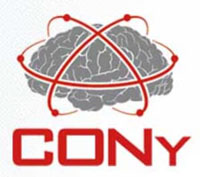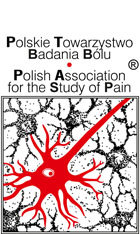
Department of Anatomy, St George's, University of London, United Kingdom
THE 13TH ESRA RA-UK Ultrasound in Pain Medicine Course will take place on 20-21 March 2020 at St George's Hospital, University of London. An international faculty of experts will teach the latest techniques in ultrasound-guided interventional procedures for chronic pain with live model and cadaver scanning workshops.

Szanowni Państwo,
Zwracamy się z uprzejmą prośbą o wsparcie w przekazaniu członkom tych ważnych informacji.
14. Kongres EFIC – Pain in Europe XIV, który odbędzie się w dniach 24–26 kwietnia 2025 r. w Lyonie we Francji, to niezrównana okazja dla klinicystów, aby rozwijać swoje umiejętności, nawiązywać kontakty z rówieśnikami i być na bieżąco z najnowszymi informacjami w zakresie leczenia bólu. Pomóż nam rozpowszechnić tę wiadomość, udostępniając to ogłoszenie w swoim oddziale i wśród swoich członków.
Więcej szczegółów znajdziesz na stronie internetowej Kongresu: https://efic-congress.org .
Dziękujemy za cenną współpracę!
Serdeczne pozdrowienia
Giacomo Quaglio
Specjalista ds. projektów edukacyjnych
Europejska Federacja Bólu EFIC
Rue de Londres – Londenstraat 18 B1050 Bruksela
Telefon: +32 2 251 55 10 / E: Ten adres pocztowy jest chroniony przed spamowaniem. Aby go zobaczyć, konieczne jest włączenie w przeglądarce obsługi JavaScript.

Following a hugely successful CONy 2019 held in Madrid, Spain, with over 1,100 delegates from more than 70 countries, our upcoming CONy 2020 in London promises to be CONy’s biggest and brightest yet.
What makes CONy stand out compared to other medical congresses are the differences in structure and focus. Conferences are generally informative, but there is often only limited time for thorough and critical discussions. CONy provides a platform for international experts to discuss and compare experiences, thus closing the gap between the expansion of knowledge and its dissemination and use. By having this debate style structure, the congress has become a major annual event for members of the neurological community. The popularity and increasing relevance of the topics and debates explored during this annual congress has bore many other offshoot meetings, focused on various topics.

On behalf of the World Stroke Organization, we look forward to welcoming you to the 15th World Stroke Congress (WSC 2023) in Toronto from October 10-12, 2023, with accessible online […]

On behalf of the World Stroke Organization, we look forward to welcoming you to the 15th World Stroke Congress (WSC 2023) in Toronto from October 10-12, 2023, with accessible online […]

JOIN DR RAJA REDDY & colleagues in London on 14-15 July 2023 for the 1st Musculoskeletal Ultrasound, Interventional Spine & Orthobiologics Conference in Dorchester Library, Royal College of Physicians. An application for CME Credits has been submitted to the European Accreditation Council for CME.

